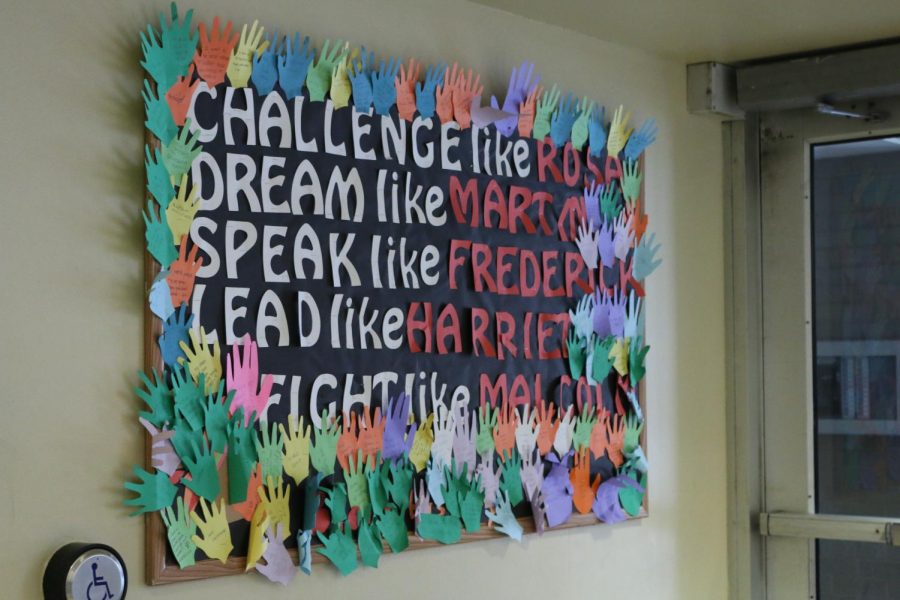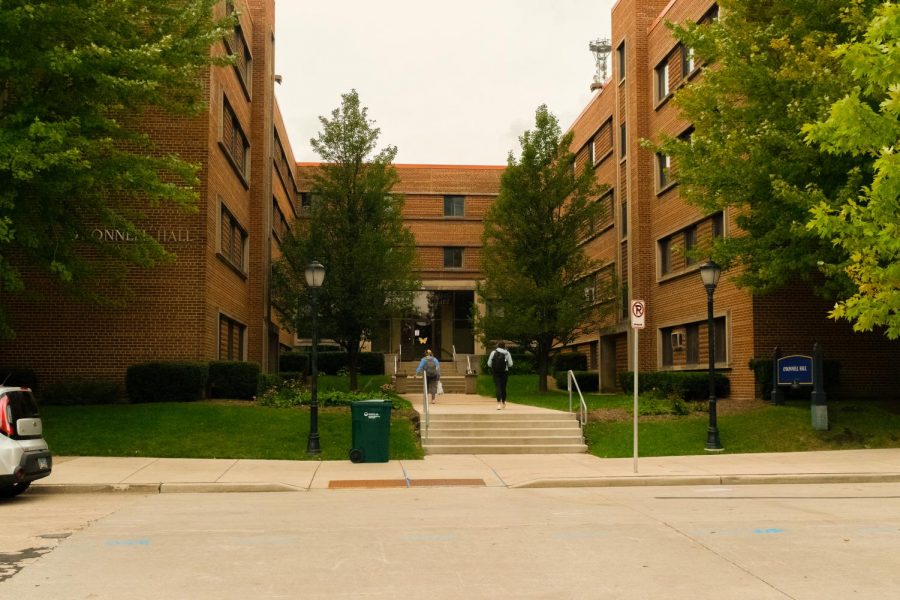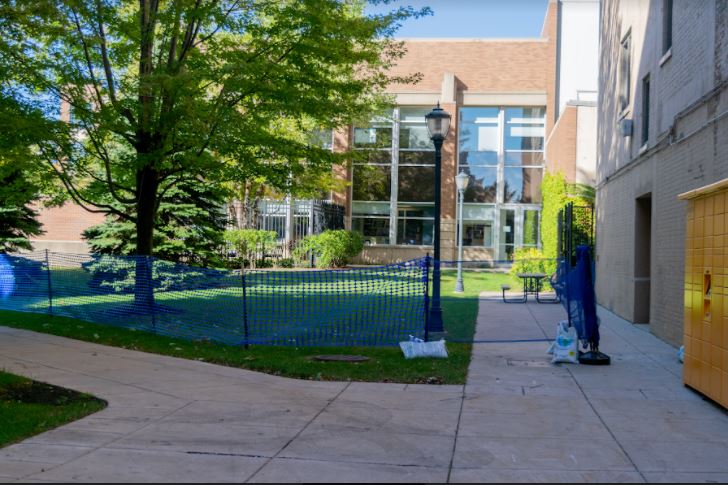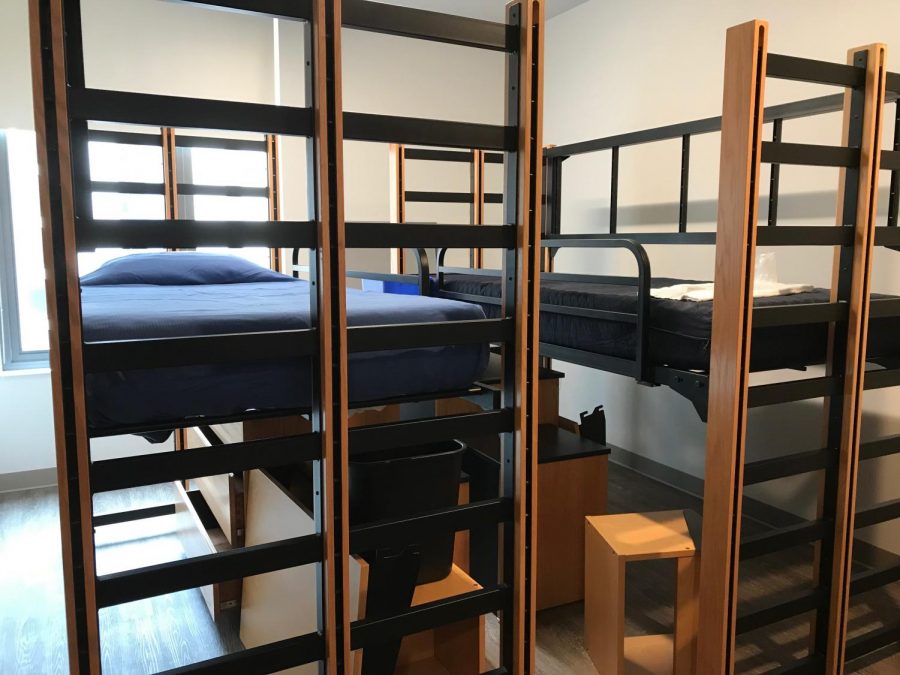The Office of Residence Life recently implemented a social justice theme in residence halls across campus, but not all students are happy with the result.
The theme required resident assistants to decorate floor bulletin boards with issues chosen by residents and resources provided by ORL. RAs were provided with a social justice resource packet, and they will be leading follow-up discussions on their floors, Tracy Gerth-Antoniewicz, assistant director for residence life education, said in an email.
Joel Burfeind, an RA in Mashuda Hall and senior in the College of Communication, recently cited the social justice theme as a form of a liberal bias in an article on Campus Reform, a conservative news website. The article was written by Zach Petrizzo, a freshman in the College of Arts & Sciences, who did not respond to multiple requests for comment.
Though residents chose the issues that RAs wrote on the board, Burfeind said the additional resources RAs had to include catered to specific ideologies, exemplifying a bias in ORL.
“I think everyone should have resources. I think everyone should have a place to go. I also think that it’s wrong to completely go in one direction and completely alienate another group,” Burfeind said.
The social justice theme is one of four different themes chosen by an ORL committee. Those include self-discovery, life skills and interpersonal skills, Gerth-Antoniewicz said.
She said the social justice theme was chosen to facilitate students’ abilities to relate to people who are different from themselves.
“This is an important predictor of how a student will succeed later in life, both in the workplace and socially,” Gerth-Antoniewicz said. “Marquette administrators hear this all the time in conversations with the employers who hire our students: One of the most important traits employers are looking for is the ability to collaborate.”
Ellie McNeal, a sophomore in the College of Health Sciences, lives on the Dorothy Day Social Justice Community floor in Straz Tower. McNeal said she does not think the boards represent a liberal bias on campus, but the boards advocate for people making a difference in the world. She said social justice can represent any political opinion.
“If you’re making a difference, that’s what social justice is,” McNeal said. She said social justice is about helping people on the margins. Those people are not Republicans or Democrats, but she said they are people that need help.
The social justice resource packet did not include information about pro-life issues, conservative resources or Christian values, Burfeind said. He said when conservative students don’t see those resources, they think they don’t have a voice or importance on campus.
“In an effort to be inclusive to all, our campus — specifically residence life — has gone over the line and said, ‘We’re going to only include these people,’ and has in fact alienated this group,” Burfeind said.
Gerth-Antoniewicz said social justice is included in the Jesuit mission, and it is not liberal or conservative.
“We believe, as it states on our website that, ‘Students, faculty and staff of every religious tradition are invited to engage in conversations about faith, God, social justice, the search for truth, the desire for peace, global issues, ethics and the dignity of humanity,'” Gerth-Antoniewicz said.
McNeal supports the boards because service is a Marquette pillar. Service as Marquette defines it is working toward social justice, she said.
Burfeind said he reached out to ORL last year about his concerns after the presidential election, but he was not given a response. Last week, his residence hall director spoke to him about connecting with someone higher up in ORL. Burfeind said he heard back from his RHD yesterday but has yet to set up a meeting.
“It’s really disappointing that they say that they’re inclusive to all and that they want to bring conversation, but at the end of the day, they don’t,” Burfeind said.
Burfeind said throughout his two years as an RA, a pattern of leaning ideologies in ORL has prevailed, and the social justice boards are just one example of ORL pushing a certain agenda.
Burfeind cited a situation in which his fellow RAs wanted to give out candy and free hugs after the presidential election.
“What does that tell people who voted for Trump? What does that say? That says that they’re wrong; that says that they’re bad,” Burfeind said. “Based on percentages, there’s probably 30 percent of this building who share the same views as I have but are silenced because of ORL’s culture.”
Burfeind said though it is hard and took him a long time to speak out, he encourages conservative students to voice their beliefs in a constructive way.
“Don’t be mean. Don’t be rude. Don’t try to cause problems. Just try to create dialogue and have conversation, so that way you have a voice, and there’s opportunity for both sides,” Burfeind said.







